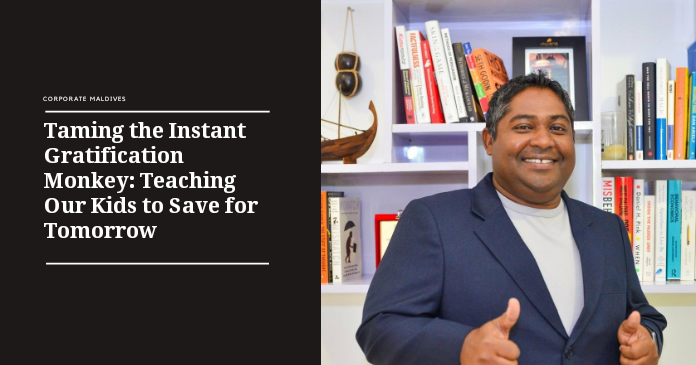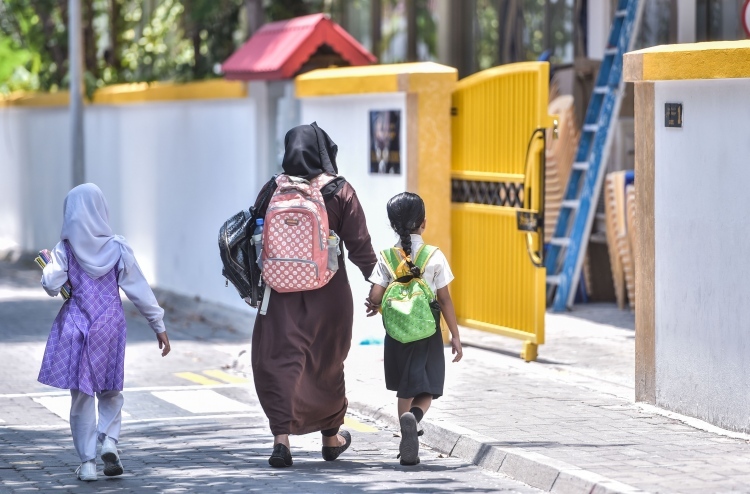
Home Economics was once taught in the Maldives. I am not sure the exact contents that were taught but I used to hear that it included cookery for sure. I am not sure if personal finances and resource management for families or households were part of this but I definitely think this will go a long way in alleviating some of the challenges we have with our youth today. Not only youth, but we all also need better education in managing our resources especially money. Maybe it is time to bring this back and mainstream it in schools.
Staying connected and embracing technology are good things if we can afford them. It is a pity that some of us are really bad at living within our means. We have, as a society, come place too much emphasis on unnecessary status symbols are the latest mobile phones and owning motorbikes. I have met too many youths, especially boys who aspire to own motorbikes and cars without realizing that the ‘vehicle’ that can take them there is a career or employment. For some of them, jobs or employment are secondary priorities that are necessary only as a source of income that will ultimately get them their prize: a motorbike or a car. It is said that this mindset is driving a lot of their decisions. Especially in hospitality, I see a lot of movement of youth hopping from one resort chasing service charge without much regard to many other things that make work worthwhile.
Changing phones and a wasteful ‘coffee culture’ is also fueling the descent of the youth into the debt trap. Again, staying social and spending time with friends does have obvious benefits but look a little deeper and you find that the benefits from this are outweighed by the stress of not being able to live within one’s means and at times the bad habits associated with these activities such excessive smoking, passive smoking and consumption of too much caffeine. Petrol guzzling bikes that contribute more towards road congestion, reckless behavior, environmental/noise pollution, and a sedentary lifestyle than any increase in efficiency and productivity they will bring to anyone’s life. Look beyond the glossy exteriors and one starts to see how they are more of a nuisance than a convenience.

We as a society also do not put enough emphasis on saving for the future and educating youth on the long term implications of their buying and spending decisions today. Instead, some of the institutions are seen as opportunistic by taking advantage of the culture of materialism instant gratification. Banks, motorbike dealers definitely need to rethink their strategy of taking advantage of a generation that is also getting a bad start at life with a burden of student loans. Instant gratification is a trap and we should help the youth steer away from – instead we see more and more of these traps being dangled in front of our kids every day.
Our kids need this awareness and education today to make them smarter spenders. The malaise of looking for instant gratification, thrills in speed, and status symbols are slowly killing them like the ‘frog in boiling water’. They need to refocus their attention and energy at careers that have the highest potential of giving them the ability to do their best instead of chasing the highest salaries to buy a motorbike or sustain a wasteful lifestyle. They need more self-control and become more entrepreneurial. Self-control is the ability to delay gratification and be able to take charge of their decisions today in order to have a better tomorrow. That is also the Islamic way of life, that is the sensible way to live.
Many of the economic principles we know are true for the imaginary species ‘homo economicus’, we are unfortunately all Homo sapiens and we are not always rational with our behavior and economic decisions and to think we will ever be is quite naive. We have to remind ourselves, nudge our own selves, and our kids to be rational more often. It will always be work in progress and we will have to learn what works and what does not in terms of which nudges are most effective in making sure we as a society make better decisions about how we spend money. We have to nudge, incentivize, and encourage ourselves to economize, cut down on wasteful spending and save for the future. Financial wellness is an integral part of an individual’s overall wellness and employers too must start educating people for better and wiser spending decisions so they can live within their means, have greater peace of mind, and more fulfilling lives.
About the writer: Hassan Saeed is a hotelier with over 28 years of experience in Maldives tourism and resort operations. He is passionate about behavioral economics and how concepts like ‘Nudge’ can be applied in service settings. Hassan identifies himself as a lifelong learner. He currently holds the position of Resort Manager at Dhigali Maldives.











